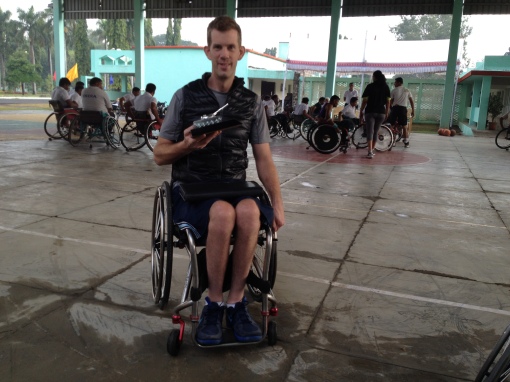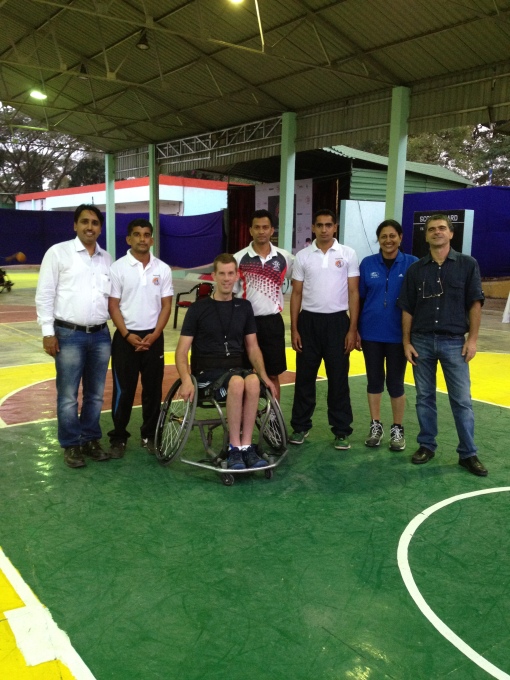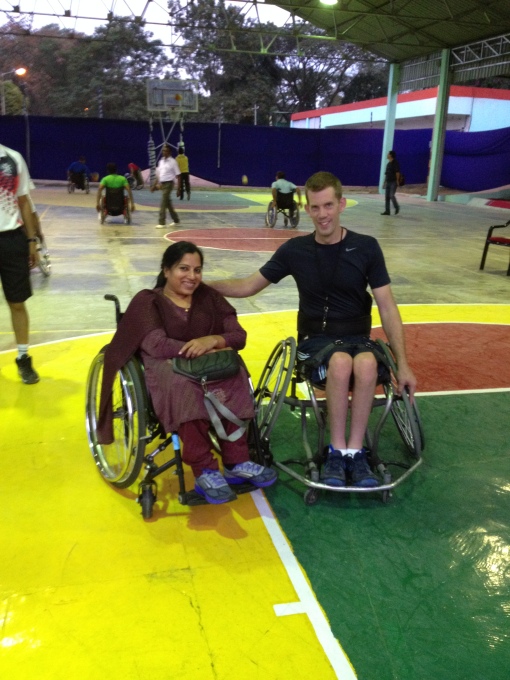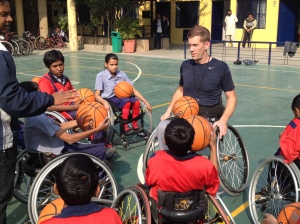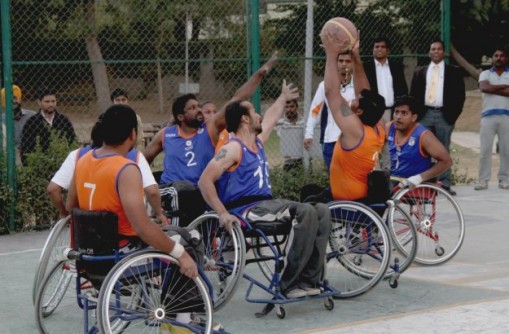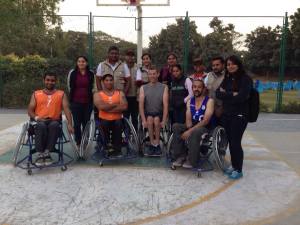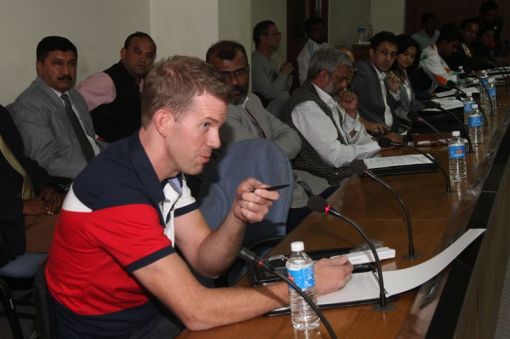My first coaching trip to India is a wrap. Before making this journey, knowing it would only be six days long with so many new athletes, coaches and places packed into such a short time (not to mention a 12 ½ hour time difference to deal with), I assumed the trip would be over before I was aware it had even begun. The reality couldn’t have been farther from the truth; I had such wonderful interactions with the groups of players, coaches, and administrators in each city – and they were all so eager and grateful to learn – that nearly every hour felt like a singular fulfilling experience unto itself.
After leaving Delhi, I flew to the western city of Pune, where a rehabilitation center for Indian army soldiers with spinal cord injuries has had a “team” of wheelchair basketball players for a couple years. Heading into the two-day training camp, I didn’t have any idea what to expect – the Pune court was the only one that, due to tight security protocols, hadn’t been visited by any of my colleagues who are working to set up a pan-Indian league. I was interested in seeing how advanced the Pune players would be, given that they are the only group in the country that’s been playing for more than six months at this point, and curious about the collective personality of a group of paraplegic ex-soldier basketball players.
As has been the case with every new team with which I’ve worked in every country to which I’ve traveled over the last five years, the Pune group was absolutely delightful personally and pretty rough from a technical basketball perspective. While I assumed the main vestige of their military service would be gruff, formal personalities, the only real difference from other groups I’ve trained was their ability to focus and learn new, foreign concepts and drills extremely quickly. With only two days to train 22 players (and no other foreign coaches with whom to divide teaching responsibilities), I knew I’d have to move quickly in order to give them any level of improved knowledge and facility. Luckily for me, they were probably the most astute first-time students I’ve seen yet. From individual skills to team defensive and offensive concepts, they followed directions precisely and showed a ton of progress over the short clinic.
The team was so gracious as well, thanking me profusely throughout the two days for making the journey to teach them. They even gave me with a model-sized metal tank (their colonel said when presenting it to me, “This is a token of our love and appreciation… It is a tank because we are army.”) – definitely the most adorably aggressive (aggressively adorable?) thank you gift I’ve ever received.
Thank you tank
A major advantage the Pune team will have moving forward is a fantastic core of coaches, led by two former national-level able-bodied basketball players, Sharad and Suwana. They are still learning the wheelchair-specific aspects of the game, but are fantastic motivators and highly knowledgeable about basketball in general. Having high-level players from outside the disabled community so involved will be a huge boon to promoting and developing the game in the future.
The Pune coaching staff along with Roberto Ciccone (right) of ICRC India
I was joined in Pune by the president of the new Wheelchair Basketball Federation of India, Madhavi Latha. Madhavi is an amazing person who has taken up the cause of building this game into both a country-wide league available to all disabled athletes and an international-level competitive program that will eventually represent India in competitions with other countries. She is a truly inspiring person who, having suffered as a child from severe polio and nearly losing her life to complications from the disease and a sedentary lifestyle, took up swimming in her late 30s to improve her condition without resorting to high-risk surgery. She has since become a national-level competitive swimmer and is now leading the wheelchair basketball charge by convening a huge group of stakeholders throughout the country to spread, fund, and grow the sport as quickly as possible throughout India. She is a truly impressive personality that, I have no doubt, will use her perseverance and ingenuity to lead Indian wheelchair basketball to great heights.
Madhavi Latha, President of the WBFI
10 days from now, the few existing teams from around India will gather in Chennai for the country’s first national championship tournament. While previous commitments meant I had to leave India before the tournament, I know it will be a fantastic experience for all involved. Best of luck to the players, their coaches, and everyone who has helped to make this first major step in Indian wheelchair basketball a reality!
